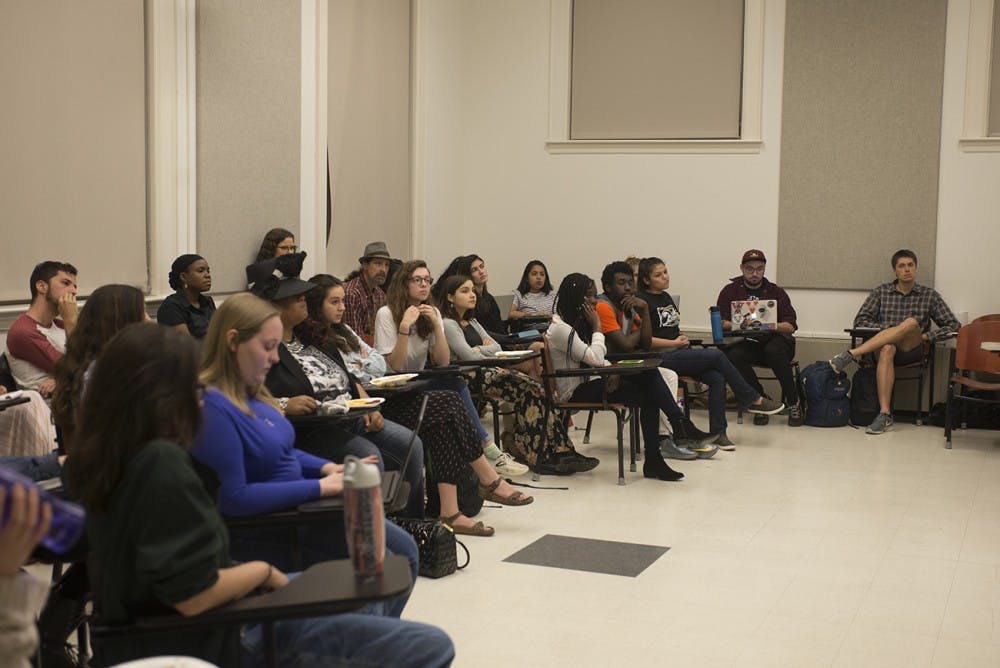Approximately 30 people attended a nonviolent direct action workshop Monday hosted by the U.Va. Students United coalition which taught students and community members about effective direct action tactics to challenge government officials in power.
UVASU has informal weekly meetings to organize and mobilize direct action efforts in matters involving social, economic and racial justice. The coalition is not a CIO.
Donna, a member of a local Charlottesville activist collective who only wanted to be referenced by her first name for security reasons, led a majority of the meeting by outlining the purposes of direct action protests.
Donna said direct action is an immediate tool that people inside and outside the affected communities can have in response to injustice surrounding them. She also highlighted the impact direct action can have by emboldening more people to take direct action.
“Things that you thought are impossible are possible,” Donna said. “You have to come up with the tools and the tactics, whatever it’s going to take, to make your plans work.”
Other members of UVASU gave presentations on the importance of creating a network of those willing to participate in organized direct actions. The group believes that an on-call group of connected people is especially important in light of the election of President Donald Trump, as he has made it clear he will enforce what they called threatening campaign promises.
“We need to be prepared if anything happens,” said Nqobile Mthethwa, a fourth-year College student and UVASU member.
Ibby Han, a fourth-year College student and UVASU member, said she has seen a spike in participation since the 2016 presidential election.
“People are angry enough that they’re more willing to take steps toward direct action,” Han said.
Han presented a case study on a March 2016 direct action protest organized by the Virginia Student Environmental Coalition in Richmond at the Department of Environmental Quality. She showed a video of a group of students who occupied the lobby and surrounding sidewalks of the building, providing commentary on effective protesting techniques.
Han also commended the March 2016 protestors for their clear message, delegation of roles and for organizing the elements of the direct action in advance. She pointed out signage and chant clarity and recommended that each direct action have similarly pre-planned roles for each participant.
UVASU members outlined important security measures and accompanying security culture for those participating in direct action efforts both on Grounds and in the community and encouraged students to participate willingly in direct actions on behalf of local injustice.
“In the end, we have the right to assemble, we have the right to free speech,” said Elizabeth Stafford, a third-year College student and UVASU. “As students, we carry a special privilege because police do not want to arrest us.
UVASU defined security culture as “a set of customs and measures agreed upon among a group of people in order to protect themselves and ensure the effectiveness of their work.”
Suggestions they provided included using the Signal mobile application, an end-to-end encrypted messaging services and face-to-face member communication about protests as opposed to methods like email and Facebook Messenger.
To close the meeting, second-year Engineering student and UVASU member Todd Le reiterated that direct action is a part of an integrated approach.
“You have to attack issues from all sides,” Le said.
VASU’s next meeting is Feb. 27.







